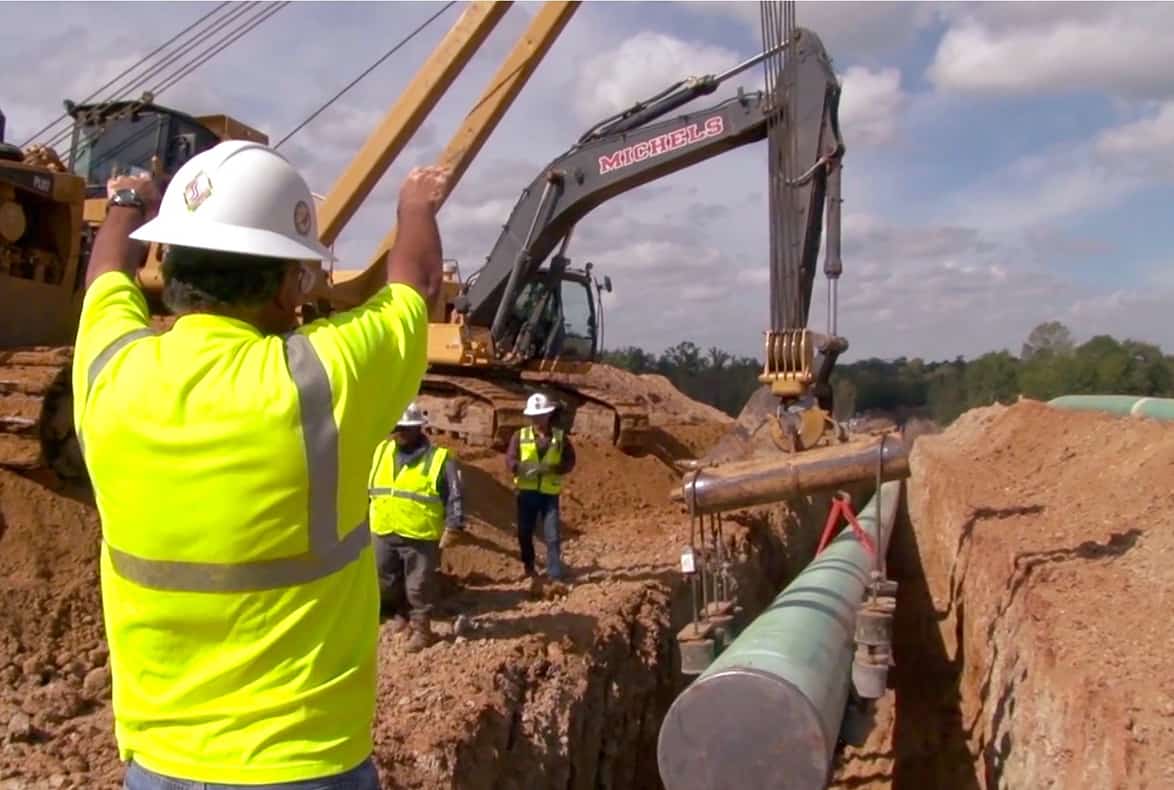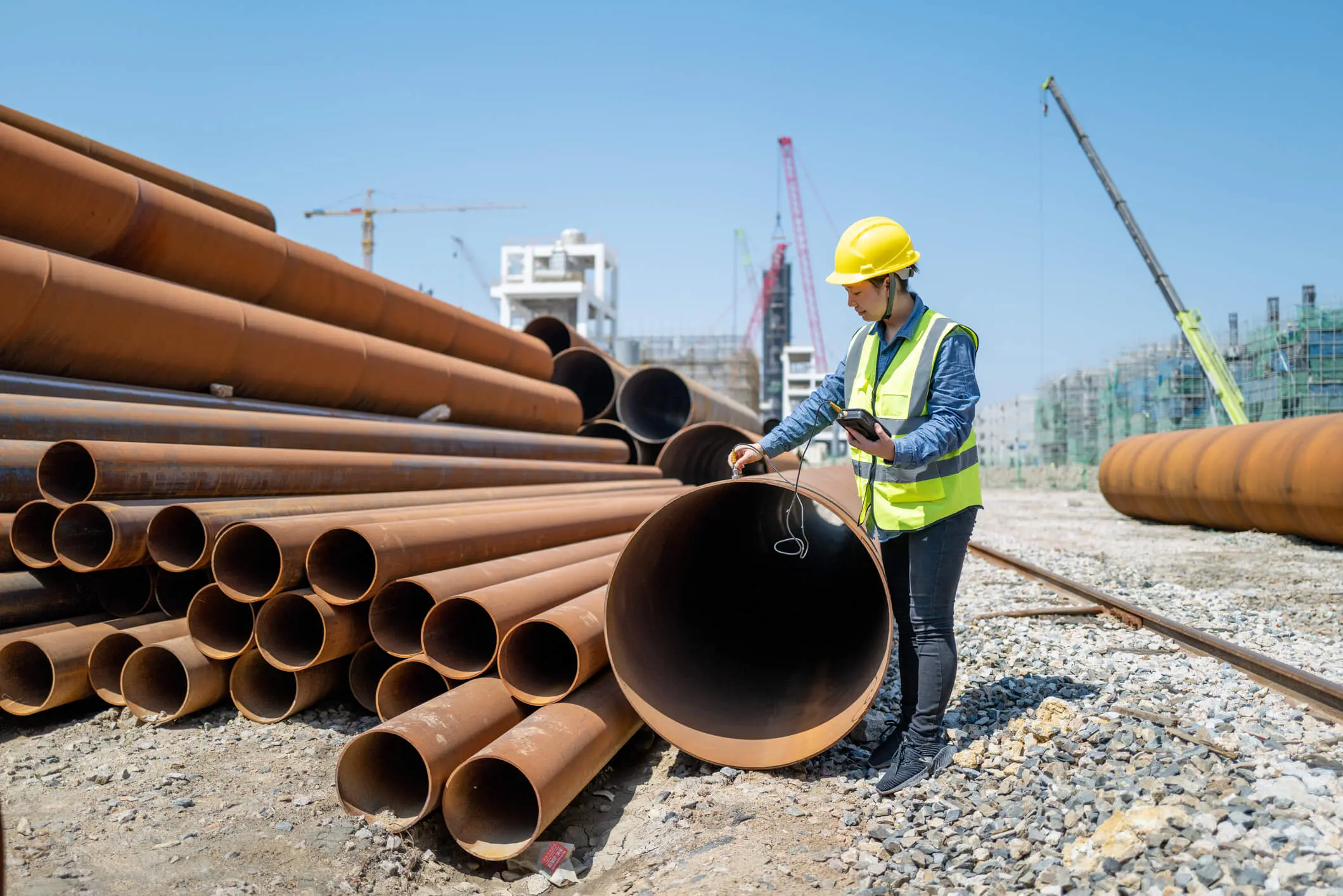A Comprehensive Guide to Understanding Pipes and Their Role in Building
Pipes are vital components in construction, serving crucial functions in gas, waste, and water administration. Their selection and application can considerably affect a building's efficiency and safety and security. Numerous products, such as PVC, copper, and PEX, supply distinctive advantages suited to details demands (Creek Pipe Pipeline Construction). Comprehending these elements is key for any kind of building and construction project. As one explores the details of pipes, the implications for compliance and public health come to be progressively apparent
The Relevance of Pipes in Building and construction
Pipes serve as necessary conduits in construction, facilitating the motion of water, gas, and waste throughout buildings and facilities. Their role extends past mere transportation; they are essential for making sure the performance and safety and security of commercial and domestic environments. Appropriately installed pipes add to the reliable circulation of sources, enabling everyday tasks such as showering, home heating, and cooking. Pipelines play a pivotal role in waste management, guaranteeing that sewage and wastewater are effectively eliminated from living spaces.The significance of pipes is also shown in their effect on public wellness. Faulty or inadequate piping systems can bring about contamination and harmful conditions, making high quality products and setup techniques critical. Additionally, pipelines need to conform with various building ordinance and laws, which are created to shield both owners and the atmosphere. The value of pipelines in construction includes both sensible functionality and crucial health factors to consider.
Kinds Of Piping Utilized in Structure Jobs
Numerous sorts of pipes play a significant function in building projects, each designed to fulfill specific needs and applications. Among the most commonly utilized pipeline kinds are PVC, which is resistant and lightweight to corrosion, making it suitable for water drainage and air vent systems. CPVC pipelines, similar to PVC, can stand up to higher temperature levels, often used in warm water systems. Copper pipelines are understood for their longevity and dependability, regularly utilized in plumbing and heating applications. Galvanized steel pipes, while much less typical today, were when a standard for water lines as a result of their toughness. Additionally, PEX (cross-linked polyethylene) pipes are obtaining appeal for residential pipes as a result of their versatility and resistance to scaling and chlorine. Cast iron pipes are favored for their sound-dampening properties, typically made use of in waste and dirt systems. Each pipeline type offers unique features, making certain efficient operation in building and construction tasks.
Common Products for Piping and Their Properties
In building, the choice of pipeline products is crucial for making certain longevity and functionality. Steel pipes offer strength and resistance to high stress, while plastic pipes offer lightweight and corrosion-resistant choices. Compound pipes incorporate the benefits of both products, making them functional choices for numerous applications.
Metal Pipe Options
Steel pipes are essential parts in building and construction, supplying a variety of choices that satisfy different applications and ecological problems. One of the most typical products include steel, copper, and cast iron. Steel pipes are recognized for their strength and resilience, making them appropriate for high-pressure applications. Copper pipes are preferred for their corrosion resistance and antimicrobial residential properties, typically made use of in plumbing systems. Cast iron pipes provide excellent sound insulation and are ideal for waste and drainage systems. Each steel kind has distinctive advantages; as an example, galvanized steel can stand up to rust, while stainless steel supplies remarkable corrosion resistance. Selecting the suitable metal pipe depends upon elements such as price, ecological exposure, and the certain requirements of the construction project.

Plastic Pipe Advantages
Plastic pipelines have actually gotten popularity in construction due to their lightweight nature and flexibility. These pipes, made from materials such as PVC, CPVC, and PE, offer exceptional resistance to deterioration and chemical damages, making them suitable for various applications. Their convenience of installation more enhances their charm, as they can be reduced and signed up with without special devices. In addition, plastic pipelines are generally more economical contrasted to metal options, contributing to reduced general project expenses. Their smooth indoor surface areas reduce friction and boost flow prices, while insulation residential properties aid keep temperature control in pipes systems - Creek Pipe Texas. With a large range of setups and sizes available, plastic pipelines properly satisfy the diverse requirements of contemporary building and construction tasks
Composite Pipe Characteristics
Composite pipes combine different products to take advantage of their specific strengths, resulting in boosted performance and longevity. Normally, these pipes consist of layers that may include metals, plastics, and porcelains, each adding unique homes. The internal layer may be made of a corrosion-resistant material, while the outer layer supplies strength and influence resistance. This mix allows composite pipes to withstand severe temperatures and stress, making them ideal for a broad array of applications, consisting of water and industrial procedures. Additionally, composite pipes are frequently lighter than traditional materials, assisting in less complicated handling and installment. Their adaptability and flexibility to various atmospheres make them a recommended choice in modern building and construction tasks, making certain longevity and efficiency in fluid transport systems.
Applications of Piping in Plumbing Equipments

Electrical Channels: The Function of Pipes in Wiring
In modern-day building and construction, electrical channels play a crucial role in ensuring the reliable and secure transmitting of electrical circuitry throughout structures. These pipelines give a safety path for electrical cords, safeguarding them from physical damages and environmental aspects. Numerous products, such as PVC, metal, and adaptable conduits, are made use of depending upon the specific requirements of the installation.Furthermore, channels help in organizing electrical wiring systems, decreasing the danger of electric hazards like brief circuits or fires. helpful hints They likewise facilitate simpler upkeep and upgrades, as cables can be accessed and replaced without considerable disruption to the structure.Proper installment of electric channels is important for compliance with building regulations and safety and security guidelines. This organized method not just enhances the long life of the electrical system however also adds to the general safety and security and functionality of the structure, making electrical conduits essential in contemporary building methods.
Choosing the Right Pipeline for Your Task
How can one ensure the ideal pipe option for a construction job? The choice procedure begins with understanding the specific demands of the project, consisting of the type of fluids being transported, stress scores, and ecological conditions. Product alternatives, such as Copper, steel, and pvc, must be examined based on toughness, corrosion discover this info here resistance, and thermal properties.Next, one need to think about the pipeline's size and flow capability to identify efficient operation. Governing criteria and codes must also be complied with, as they determine the appropriate materials and practices for details applications. Consulting with professionals and making use of extensive resources can better help in making educated decisions.Finally, evaluating the cost-effectiveness of different choices is essential, balancing preliminary expenditures with lasting maintenance and substitute prices - Creek Pipe Company LLC. By carefully examining these variables, one can with confidence choose the most suitable pipe for their construction task, guaranteeing both performance and conformity

Upkeep and Inspection of Pipes in Building
Proper choice of pipelines establishes the structure for their long-term efficiency, making maintenance and evaluation essential elements in building and construction. Normal upkeep guarantees that any possible problems, such as leakages, rust, or clogs, are determined and addressed promptly, decreasing expensive fixings and job hold-ups. Arranged evaluations, including aesthetic assessments and pressure tests, play a crucial function in reviewing the honesty of pipe systems.Additionally, keeping an eye on environmental elements, such as temperature level variations and dirt problems, can help expect deterioration. Utilizing innovative modern technologies, such as CCTV for indoor examinations, can enhance the performance of upkeep check out this site initiatives. It is vital to record inspection findings and maintenance tasks to develop a comprehensive history of the pipe systems. By focusing on maintenance and assessment, building experts can prolong the lifespan of their piping systems, ensuring they operate efficiently and dependably throughout the job's period.
Regularly Asked Inquiries
Just How Do Pipelines Impact Energy Performance in Structures?
Pipelines greatly affect energy efficiency in buildings by regulating heating and cooling systems. Appropriate insulation and materials reduce energy loss, while efficient plumbing designs lessen water usage, ultimately causing reduced energy consumption and functional expenses.
What Rules Govern Pipeline Installment in Building?
Regulations regulating pipeline installation in construction typically include local and nationwide building ordinance, pipes codes, and security standards. These warranty compliance with structural stability, product requirements, and wellness demands, advertising security and efficiency in building practices.
Can Pipeline Be Recycled After Usage?
The inquiry of pipe recyclability is significant. Lots of products, such as steel and certain plastics, can be reused efficiently. Nevertheless, the condition and sort of pipe influence reusing expediency, requiring proper assessment before disposal.
Exactly How Do Climate Condition Impact Pipe Performance?
Climate condition substantially affect pipeline performance. Severe temperatures can create expansion or tightening, while wetness may cause corrosion. Additionally, heavy precipitation can raise dirt stress, influencing security and overall capability of the piping system.
What Are the Indicators of Pipe Failure to Watch For?
Signs of pipe failing consist of leaks, unusual noises, discoloration of water, decreased water pressure, and visible corrosion. Normal examinations can help spot these issues early, guaranteeing and stopping pricey fixings system performance in the lengthy term. Pipes play an essential role in waste monitoring, ensuring that sewage and wastewater are successfully removed from living spaces.The importance of pipelines is additionally mirrored in their impact on public wellness. In building, the option of pipeline products is critical for ensuring resilience and functionality. Metal pipelines use strength and resistance to high stress, while plastic pipelines give lightweight and corrosion-resistant choices. Furthermore, pipelines are utilized to get rid of wastewater, connecting bathrooms, sinks, and drains pipes to community sewage systems or septic tanks.Different types of pipes, such as PVC, copper, and PEX, are selected based on aspects like sturdiness, cost, and specific application requirements. Just how can one assure the best pipe option for a construction task?